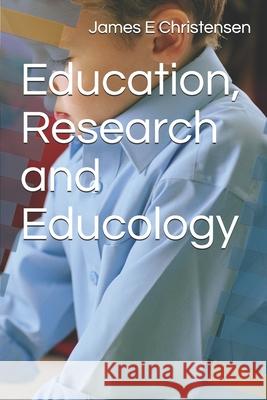Education, Research and Educology » książka
Education, Research and Educology
ISBN-13: 9781541385993 / Angielski / Miękka / 2016 / 424 str.
There is education and educology. Education is a process in which someone intentionally teaches and someone intentionally studies under guidance some content in some physical, social and cultural setting with a view that the student achieves some range of knowing and/or understanding. The four essential elements of education are teachers, students, content and setting. Education can be official or unofficial, effective or ineffective, and good or bad. Educology is the fund of knowledge (i.e. the set of true statements) about education. Educology is produced by research. Educological research is asking questions and finding necessary and sufficient evidence to warrant that answers offered for the questions are true. Warranted knowledge claims about education can be analytic, normative or empirical. Each type of knowledge claim requires its own discipline, i.e. rules of proof and techniques of adducing evidence. Educological research entails a mastery of the disciplines of analytic, normative and empirical inquiry. The first step in educological research is to pose a question about some relation among the essential elements of teachers, students, content and setting. The second step is to ask what kind of question is being posed, i.e. analytic, normative or empirical. The kind of question determines the discipline (the rules of proof and the procedures for collecting and analyzing evidence) that must be used in the research. Commonly used intellectual perspectives in conducting educological research are those of analytic philosophical educology, normative philosophical educology, historical educology, jurisprudential educology, scientific educology and praxiological educology. All six perspectives require the use of all three disciplines (analytic, normative and empirical). The domain of educological research is the relations among the four essential elements of education, viz. teachers, students, content and setting. The product of successful educological research is an extension of educology (i.e. an addition to the fund of knowledge about education). Educological theory provides the concepts (constructs) for identifying educational phenomena and the explanatory principles for connecting determinants with resultants among educational phenomena. Educological theory drives educological research by providing hypotheses which can be used to test the validity and truth value of educological theory.
Zawartość książki może nie spełniać oczekiwań – reklamacje nie obejmują treści, która mogła nie być redakcyjnie ani merytorycznie opracowana.











